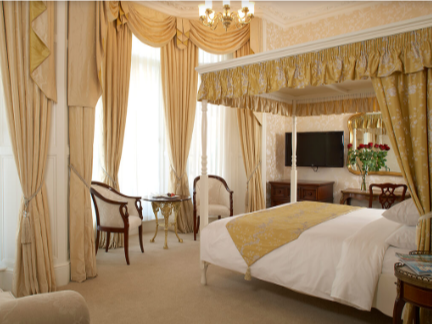A Comprehensive Guide to Hotel Supply Sheets

Hotel supply sheets are a crucial part of the hospitality industry. They play a significant role in providing guests with a comfortable and luxurious sleeping experience, which can influence overall guest satisfaction. Choosing the right hotel sheets involves balancing comfort, durability, and cost-effectiveness. In this guide, we’ll explore the types of hotel sheets, what to look for when purchasing them, and how to maintain them for long-term use.
Importance of High-Quality Hotel Sheets
For hotels, high-quality bed sheets are more than just a necessity—they are a key component in creating a comfortable and inviting guest experience. Here are some reasons why hotel supply sheets are essential:
1. Comfort and Guest Satisfaction
Comfort is one of the most important aspects of a guest’s stay. High-quality, soft, and breathable sheets can significantly enhance the sleeping experience. Satisfied guests are more likely to leave positive reviews and return to the hotel in the future.
2. Durability and Cost-Effectiveness
Hotel sheets are subjected to frequent washing and heavy use, so they must be durable enough to withstand repeated laundering without losing their quality. Investing in high-quality sheets may be more expensive upfront, but they last longer, reducing the need for frequent replacements.
3. Brand Image and Luxury Perception
Guests associate the quality of bedding with the overall quality of the hotel. Luxurious and well-maintained bed sheets give an impression of attention to detail, care, and quality, enhancing the hotel’s brand image.
Types of Hotel Supply Sheets
Different materials and types of sheets are used in the hotel industry, each offering its unique advantages. Here’s an overview of the most common types of hotel supply sheets:
1. Cotton Sheets
Cotton is the most popular material for hotel sheets due to its softness, breathability, and durability. Several types of cotton are used in the hotel industry:
Egyptian Cotton
Egyptian cotton is known for its long fibers, which create soft, durable, and luxurious sheets. Egyptian cotton sheets are often considered the finest and are used in high-end hotels.
Pima Cotton
Pima cotton, like Egyptian cotton, has long fibers, but it is a more affordable option. It offers a similar soft and durable texture, making it a popular choice for mid-range hotels.
Upland Cotton
Upland cotton is the most common cotton used in hotel sheets. While it doesn’t have the same softness as Egyptian or Pima cotton, it is still durable and comfortable, often found in budget hotels.
2. Polyester Sheets
Polyester is a synthetic material often blended with cotton to create a more affordable sheet option. Polyester-cotton blends (commonly known as poly-cotton) are popular in the hospitality industry because they are wrinkle-resistant, durable, and easier to maintain.
- Advantages: Cost-effective, easy to care for, and resistant to wrinkles.
- Disadvantages: Less breathable than cotton, which can make them less comfortable in hot weather.
3. Microfiber Sheets
Microfiber sheets are made from extremely fine synthetic fibers. They are known for being soft, lightweight, and easy to maintain. Hotels that prioritize easy care and quick drying times often opt for microfiber sheets.
- Advantages: Lightweight, quick-drying, and affordable.
- Disadvantages: Less breathable than cotton and may not feel as luxurious.
4. Linen Sheets
Linen is a natural fiber made from flax plants. Linen sheets are breathable, moisture-wicking, and hypoallergenic, making them ideal for warm climates. While linen sheets are often used in luxury hotels, they tend to wrinkle easily.
- Advantages: Highly breathable, ideal for hot weather, and eco-friendly.
- Disadvantages: Expensive and prone to wrinkling.
5. Bamboo Sheets
Bamboo sheets are made from bamboo fibers and are becoming increasingly popular in eco-friendly hotels. They are soft, breathable, and moisture-wicking, making them perfect for warm climates.
- Advantages: Sustainable, breathable, and hypoallergenic.
- Disadvantages: More expensive and less common in the hospitality industry.
Thread Count: What It Means for Hotel Sheets
Thread count refers to the number of threads per square inch of fabric. While many people believe a higher thread count equals better quality, this isn’t always the case.
- 200–400 Thread Count: Ideal for standard hotel sheets. This range offers a good balance between comfort, durability, and affordability.
- 400–600 Thread Count: These sheets offer a softer and more luxurious feel, often used in higher-end hotels.
- 600+ Thread Count: Sheets with a very high thread count are often heavier and more expensive. While they may feel luxurious, they may not always be the most durable or breathable option.
Key Features to Look for in Hotel Supply Sheets
When purchasing sheets for your hotel, consider the following features to ensure you are getting the best value for your money:
1. Durability
Hotel sheets must withstand frequent washing and heavy use. Look for sheets made from durable materials like cotton-polyester blends or high-quality cotton. Reinforced seams and double stitching can also extend the lifespan of the sheets.
2. Ease of Care
Since hotel sheets need to be washed frequently, opt for materials that are easy to clean and maintain. Sheets that are wrinkle-resistant, quick-drying, and colorfast will save time and effort in laundry operations.
Read more: Latest Updates on the Evolution of AML Directives in the European Union
3. Breathability
Breathable sheets are essential for guest comfort, especially in warmer climates. Natural fibers like cotton, linen, or bamboo offer excellent breathability, allowing air to circulate and helping guests stay cool.
4. Softness
The softness of the sheets is directly tied to guest comfort. Cotton and bamboo are known for their softness, especially when they have a higher thread count.
5. Hypoallergenic Properties
For guests with allergies or sensitive skin, hypoallergenic sheets made from materials like bamboo, linen, or treated cotton can provide a more comfortable and allergen-free sleep environment.
How to Care for Hotel Supply Sheets
Proper care is essential to maintain the quality and longevity of hotel supply sheets. Here are some tips for maintaining your hotel linens:
1. Wash Regularly
Sheets should be washed after each guest checks out. Use hot water and a mild detergent to remove dirt, oils, and bacteria. For white sheets, add a bleach alternative to keep them bright and fresh.
2. Avoid Overloading the Washer
Overloading the washing machine can cause excessive friction, leading to wear and tear on the sheets. Wash in smaller loads to ensure a thorough clean and reduce fabric damage.
3. Use Fabric Softener Sparingly
While fabric softener can make sheets feel softer, excessive use can leave residue and reduce the breathability of the fabric. Use it sparingly to keep sheets soft without affecting their quality.
4. Dry on Low Heat
High heat can weaken the fibers of the sheets and cause shrinkage. Use a low heat setting or line-dry the sheets whenever possible.
5. Inspect for Damage
Regularly inspect your sheets for tears, fraying, or fading Direct textile store. Replace damaged sheets promptly to maintain your hotel’s reputation for quality and comfort.
Conclusion
Hotel supply sheets are more than just a functional part of a guest’s stay—they are a critical element in providing comfort, luxury, and an overall positive experience. By selecting the right materials, thread count, and features, and by properly maintaining your sheets, you can ensure guest satisfaction while prolonging the life of your hotel linens. Investing in high-quality sheets will pay off in the long run, enhancing your hotel’s reputation and keeping guests coming back for more luxurious stays.





